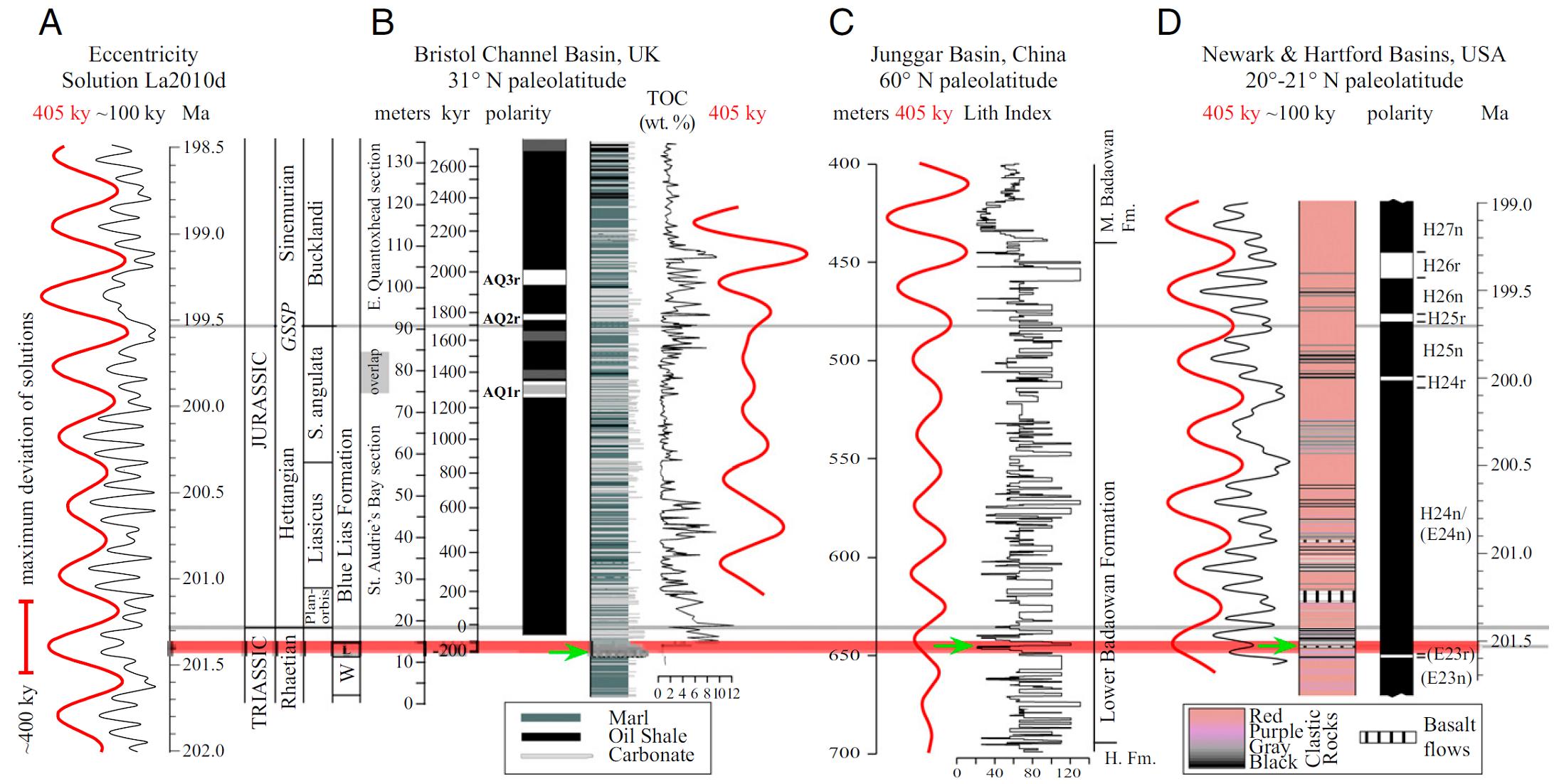
LITH Index data of Junggar Basin (C) and other correlative sections.
A paper entitled “Triassic-Jurassic climate in continental high-latitude Asia was dominated by obliquity-paced variations Junggar Basin, Ürümqi, China” by Prof. SHA Jingeng from NIGPAS and his colleagues has been recently published online in PNAS.
Our understanding of Triassic and Early Jurassic high-latitude climate, biotic evolution, mass extinction, and geochronology is very limited in contrast against those of the contemporaneous tropics. Such low resolution impairs an elucidation of the basic patterns of Earth system function during the Early Mesozoic. Besides, integral to the long-term chaotic behavior of the Solar System is the secular resonances of the planets, particularly for the inner Solar System.
Analysis of the LITH proxy of environmental change shows that an astronomical signal in which obliquity is dominant can be extracted from lacustrine strata of the high-latitude (~60º N) Junggar Basin that was straddling the end-Triassic extinction and Triassic-Jurassic boundary. This is dramatically different from the climate precession-dominated continental tropics. In combination, the data are incompatible with published astronomical solutions for the Triassic-Jurassic in phase and amplitude, consistent with chaotic behavior of the Solar System whereas, at the same time, the Earth-Mars orbital resonance seems to have been in today’s two-to-one ratio of eccentricity to inclination, providing a constraint for the Earth-Mars orbital resonance for some 201 Ma.
With the prospect of the acquisition of better temporally resolved records from deeper lake settings in the Junggar and other basins, the use of more directly climate-sensitive proxies, and additional exploration of the palaeobiological context of the strata, it will be possible to test these findings, constraining the history of Solar System chaos, during this transitional time in Earth history.
This research was financially supported by the National Basic Research Program of China, National Natural Science Foundation of China, Chinese Academy of Sciences, etc.
Related information of this paper: Jingeng Sha, Paul E. Olsen, Yanhong Pan, Daoyi Xu, Yaqiong Wang, Xiaolin Zhang, Xiaogang Yao, and Vivi Vajda. Triassic-Jurassic climate in continental high-latitude Asia was dominated by obliquity-paced variations (Junggar Basin, Ürümqi, China).PNAS.112(12), 3624–3629. Doi:10.1073/pnas.1501137112.
......CONTENTS......
